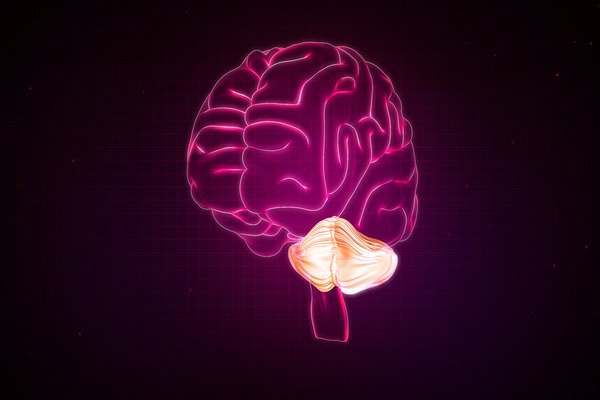How does alcohol affect the brain? What are the long-term effects of alcohol on our body? Discover the consequences of alcoholism for our mind and body.
The effects of alcohol on the brain and our body They begin to affect us from the first moment this substance enters our blood. In most healthy people, the liver can quickly filter alcohol, helping to quickly eliminate this drug. However, when a person is used to drinking, the liver may not filter this substance as quickly, which triggers different consequences for our body and brain.
How does alcohol affect the brain?
Over time, the consequences of alcoholism They can result in harmful damage to both our brain and our liver.
In fact, one of the most significant effects of alcohol on the brain acts on neurotransmitters, causing their effectiveness to decrease and even limiting their efficiency. Furthermore, another effect of continued alcohol consumption involves the destruction of our neuronal stem cells, as well as the contraction of brain tissue. Due to alcoholism and its consequences, people can have both their physical and mental health affected.
Long-term effects of alcohol on the brain
Excessive and regular alcohol consumption ends up interfering with brain chemicals that are vital for good mental health. Mainly, the consequences of alcoholism on our brain are the following.
- Anxiety : One of the effects of alcohol is that it can lead to suffering from an anxiety disorder. In fact, alcohol may be a mechanism that people experiencing anxiety turn to to escape their symptoms. Although short-term drinking may cause a sensation of escape, the reality is that these effects disappear quickly and prolonged consumption will end up damaging the brain’s information transmission pathways. Taking into account that anxiety appears when we experience difficulties in being able to cope with situations, the reduction of brain transmission pathways favors the appearance of more difficulties and with them more anxiety. In addition, feelings of anxiety can also be enhanced due to a hangover.
- Depression: In many cases, heavy drinking is associated with symptoms of depression, although it is difficult to separate cause and effect. This happens because, although in the short term alcohol consumption seems to improve mood, one of the effects of alcohol on the brain (long term) involves the deregulation of some chemical systems responsible for our mood.
- Self-harm and suicide : Another of the consequences of alcoholism It may be that people lose their inhibitions and behave more impulsively, prompting actions they would not otherwise have taken. This impulsivity can end in self-harming behavior and even suicide. Furthermore, as mentioned in the previous point, the chemical imbalance in the brain, mainly the serotonin deficit in prolonged consumption of this substance, favors the appearance of more unpleasant emotions, self-harm as a way of managing this discomfort and fantasies about death as way to end it.

- Abstinence syndrome: Withdrawal symptoms alcoholic people They can be serious and end up endangering your life. This is the case of delirium tremens, which appears when excessive alcohol consumption has lasted for months. In these cases the person may experience seizures, hallucinations, stupor, fear, sweating, etc. It usually requires hospitalization and pharmacological treatment to save your life and reduce these symptoms.
- Neurotransmitter damage : Another of the effects of alcohol on the brain is that it intervenes in neurotransmission systems. It interacts with the recaptors of some neurotransmitters, first causing communication between brain areas to be slower and, if its presence is prolonged, it generates changes in the brain communication system, ceasing to cause pleasure when it is present and becoming its presence. necessary, with withdrawal syndrome appearing when it disappears.
- Memory loss: Alcohol produces cognitive impairment that can affect both verbalization and other mental processing, such as things related to memory, learning, concentration and impulse control. In fact, studies reveal that consequences of alcoholism They are also related to damage to those areas of the brain involved in problem solving and controlling impulsive behaviors.
- Wernicke-Korsakoff syndrome : One of the long-term consequences of alcohol More catastrophic is severe thiamine (vitamin B1) deficiency, resulting in alcohol-induced brain dysfunction. Symptoms of this syndrome include confusion, disorientation, malnutrition, as well as lack of balance. Additionally, they are also linked to memory problems, mood imbalances, and poor judgment.
As we see, there are many effects of alcohol on the brain Therefore, it is important to go to a professional psychologist if there is a dependence on this substance.
Effects of alcohol on the body
Alcohol not only damages the brain, but its long-term effects also involve damage to practically all of our body systems. Studies reveal the following effects of alcohol on a physical level :
- More likely to suffer from heart disease
- Changes in heart rate
- Damage to blood vessels
- Liver related diseases
- Renal insufficiency
- Pancreatitis: inflammation of the pancreas
- Weaker immune system
- Greater risk of suffering from certain cancers, such as esophagus, breast, liver and colon.

How long does the effect of alcohol on the brain last?
Research indicates that brain deterioration induced by effects of alcohol lasts even days after excessive drinking. In fact, studies showed that our cognitive abilities, such as attention and memory, weaken even when there is no longer the presence of alcohol in the blood.
The main reason why this happens is because alcohol is a very powerful diuretic that causes our bodies to lose a large amount of fluids, which induces dehydration. To compensate, our organs absorb as much fluid as they can, just as our brain begins a great fight to stay hydrated. Additionally, as alcohol is eliminated from our body, other nutrients such as magnesium, potassium and sodium are also lost. These nutrients are not replaced immediately once the alcohol is gone, but rather are restored over time.
In this way, the brain will not recover its state for many hours, which affects attention, memory, and reaction time. Studies reveal that when we drink consequences of alcoholism They go beyond the headache and nausea of a hangover.
Reviewed by: Regina López, psychologist









